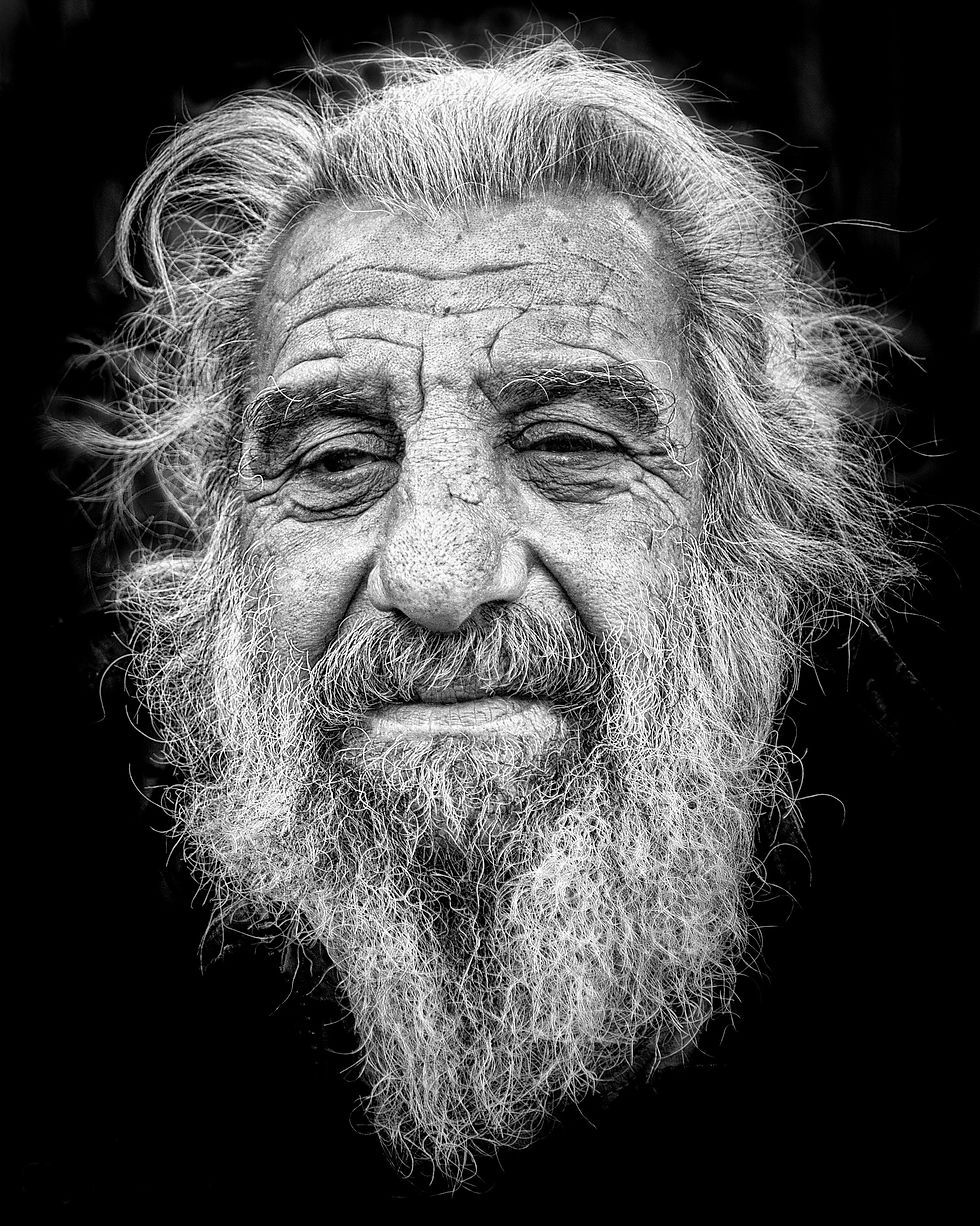Could That Possibly Be Me One Day?
- Gerda Herenius

- Jan 28, 2025
- 7 min read
Updated: Feb 14, 2025

When you are in your twenties, you are physically fully matured—the human body stops growing at about 25—but emotionally, you are still on your way to true maturity. Anyone over the age of 34 will testify to this hard-earned insight: You only really start growing up in your thirties. To someone in their twenties and even into their thirties, an individual over 60 is just simply old. They are on the outskirts of life and living, on the far side of everything relevant.
However, before the 1960s, older people were deeply respected and valued for their wisdom and the lessons they could teach about life and its complexities. The first post-WWII generation are the children born from those who were children in the war themselves, or older, who lived through and experienced the hardships and horrors of WWII. These are the baby boomers, so named because countries in the West, especially Europe, the UK and the USA experienced a tremendous boom in the 1950s in the economy, industry, career opportunities, and societal development as well as greater overall wealth compared to previous generations.
But something rather nefarious was also happening with the baby boomers. Those who formed part of this generation never really noticed and still would not notice unless they started asking themselves today: what has gone wrong with my world, my society, my country? How did we get here?
Generation after generation, era after era, century after century, one would always have a deep respect for those older than oneself. You knew they knew more about life than you did. You might know more about the latest and greatest in technological or industrial development, but older people have learnt things that you still need to learn in the great furnace of life. So, by listening to and learning from older people, forged by their accumulative life experiences, you discover that they have developed a way of looking through a wiser lens at situations, things and people, something which you still need to acquire, hone and mould.
Of course in those days too, you would find that bitter old biddy or grumpy old man. But you would simply tolerate them and perhaps, if possible, just give them a wide berth. You would remain polite when dealing with them; politeness is, after all, a reflection of you rather than the individual it is aimed at. Your deep respect for older people would not have you insult them, argue with them or engage in a useless argument with them. They were among those oddities that sometimes wash up on the shores of humanity. Most senior people filled the role of the elders of society. The respect they commanded forced them to behave in a respectable, wise manner and always set an example for those younger than they were. They carried great responsibilities.
The baby boomer generation was the first to experience a complete break from their parents and elders. This was referred to as the generation gap, a completely new and bizarre phenomenon, never seen before in human history. This phenomenon only applies to the West. It appears nowhere else but in Western countries. One could blame the incredibly rapid development of industry and technology for this break and even the mass corporatisation of business.
But, I think, it is something far more sinister than that. But that is a discussion, perhaps a conspiracy theory, perhaps not, for another day. Looking back one can see how subsequent generations have moved further and further away from their culture, their religion or spiritual practices, their society, and their community. Western civilisation is fractured and people are isolated. Social media should potentially be able to counter this rift but it appears only to exacerbate this state of affairs.
Western cultures have abandoned and lost those important cultural landmarks that would have given the youth a foundation to build upon. Instead, Western cultures are adrift in a quagmire of ideologies, leaving their youth floundering about and looking at a future where their only companion would be AI. The latter is a handy tool, a brilliant tool, in fact, but if you have no foundation in which to ground yourself, AI will eventually take over your life and your individuality. The strong human drive for individuality is slowly but continually being eradicated in the West.
Our modern Western society is broken; the chain of continuity has broken down completely. So, as a younger member of society, you reject this old ‘boomer’—and he doesn’t even have to be obnoxious to earn the rejection. ‘Boomer’ has become a slur among millennials and GenZs who do not even give it a thought that following generations are going to pick up the blame game and blame them for everything. ‘Millennial’ or ‘GenZer’ will soon be a new slur to sling at someone older than yourself. Unless we heal the rift, using generational slurs and blaming a previous generation would have us all mindlessly march on into a bleak future of isolation and disconnection.
In pre-baby boomer generations, people understood that growing older was part and parcel of life and of nature. You were a child, who grew into a young adult, who built a career, got married and had children. You raised your children to be responsible members of your tribe, clan or society. Then your children grew up, respected your role in society and mourned your passing when the time came.
In Western societies today, there is a vicious rejection of everything related to growing older, especially concerning women. They do not have the right, freedom or space to grow older as nature mercilessly demands from them. Those ageing individuals who do not reach a point where the reality of ‘everything is born, ages and eventually dies’ penetrates as an unyielding truth, live obsessively trying to defy ageing with more and more ludicrous means and bizarre behaviours.
So you live in denial of ageing and you live in denial of death. In pathetic denial, you eventually turn into an old child or a twisted unhappy soul, living a life focused on appearances.
But let’s get back to the ordinary spiteful old aunty or grumpy old man. Because we reject everything that has aged, we reject them for being old, not realising that they are not who they are because they are old. We never give it a moment’s thought as to how this unhappy old person got to this juncture in their life that they are such miserable, unpleasant human beings.
We reject the aged because we deeply fear growing older. We fear the inevitable, gradual ageing and eventual death that stands waiting for us at the end of the road. So sometimes it takes courage to peak over the rim of this fear and look a little closer. And when we can reach deep down and find the humanity in ourselves that has not yet been completely extinguished by our throw-away, narcissistic and intolerant society, we might feel a little pity. And when we sense that nudge of pity, we look with a different eye, a different perspective.
And then we see that they are not what they are because they are old. They have always been like that. That characteristic of refusing to adjust, to compromise, to let go and let live, to always want to have things your way, to be over-sensitive, to be self-centred, unforgiving, selfish, whatever it might be; these are all characteristics we all have to one degree or another. The difference is when you allow yourself to age gracefully, to mature, to act your age, you learn that certain of these characteristics are not so nice to own.
One is often quite oblivious to this in one’s twenties. But as you start the long slow process of maturation, you grow and evolve and learn that some character traits do not serve you, your family, your community, your country or even the globe.
By the time you get to sixty, many of these character traits have been moulded, reformed, adjusted or hopefully abandoned as serving no good purpose. And then you allow yourself to grow into a better version of yourself.
But those who grow older in years, never taking stock of that annoying, selfish or short-sighted characteristic coming with you from your childhood, through your teens, and into your twenties, will grow old with this unpleasant trait. Years and experiences—good and bad—pile up and things accumulate and ossify. So your inability to let bygones be bygones, to forgive, or whatever baggage you lug around with you, turns you into a rigid inflexible, bitterly, unhappy resentful soul in an old body.
So, as a young person separated from older people in your society, being falsely led to believe that you are so on top of life and know it all, miss an opportunity to learn something of value.
You could look at that bitter, snarly, old person and suddenly have the insight that you share a characteristic with this older person, you just have not carried it with you as long as they have. You can still change yours but they have cemented themselves into this inflexible disposition.
Now you learn something really valuable from this old person. How not to grow older. This, however, you will be unable to do if you live in denial of the real truth that ageing and growing old happen to everyone unless you die young.
If you can see yourself clearly and see the twisted bitter old lady or man as possibly being you one day if you do not learn to forgive, if you do not learn tolerance, or if you do not learn to let go of perceived slights. Then you are strengthened to make a bold choice: to change the characteristics you share with this old person. They are who they are but for the choices made along the way. You now have the insight to make changes in yourself and to alter the course of your life on the way to the old person—hopefully a sweet old lady or an adorable old man—you will inevitably be one day.



Comments